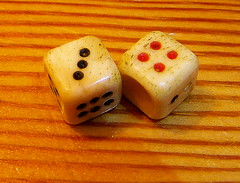
Already a member? Log in here
Related posts:
- How to Act In the Face of Uncertainty: Both “Doubt” and “Faith” Can Be Rational
- Jack of All Trades, Master of None: Why Every New Skill Doubles Your Chance of Success
- 6 Aspects Of A Balanced Person: A Complete Picture of Well-Being
- Why Confidence Is One of The Most Important Traits to Our Evolution
- The Power of Small Rituals in Overcoming Life’s Obstacles
- How to Take Advantage of Opportunities on a Daily Basis
- Washing Away Your Troubles – Literally
- Changing Habits: What Keeps Me Stuck In Old Ways?
